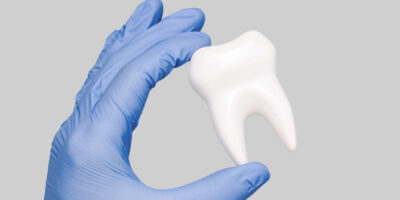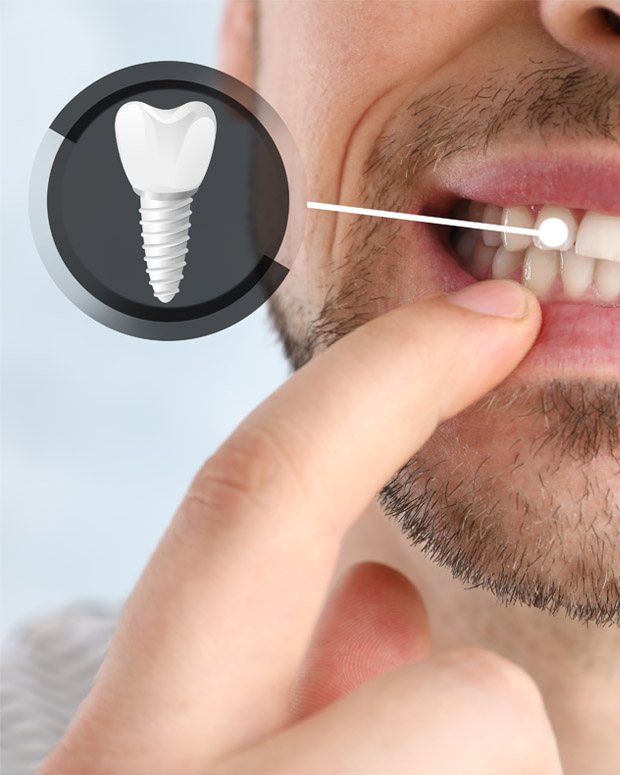Santa Monica LiveWell Dentistry
We are committed to providing quality healthcare to families located in the Santa Monica area and treat patients of all ages. We provide comprehensive solutions for our patients' oral health needs. Believing in the importance of listening to our patients, we take the time to truly understand each person's needs, goals, and lifestyle. By understanding our patients' objectives we can provide solutions that will improve their health while transforming their smile into something bright and beautiful.
Santa Monica LiveWell Dentistry is located at 2730 Wilshire Blvd Ste 100, Santa Monica, CA. We are currently accepting new patients, and you can schedule an appointment by calling 310-828-2440.

Our Team
Dr. Khanideh and Dr. Pouyan and the team at Santa Monica LiveWell Dentistry provide quality dental care to patients in the Santa Monica area, focusing on a comprehensive approach to oral health. By treating and educating patients, our team helps patients to stay healthy in between visits. Our team understands the importance of listening to patients, helping them to feel comfortable and relaxed. This personal approach is evident in everything we do. From making an appointment, filling out paperwork, conducting an examination, and providing dental treatments, the team at Santa Monica LiveWell Dentistry take the time to connect with patients and give them the thoughtful attention they deserve. Our team is trained on advanced dental procedures and techniques so that patients can benefit from the latest in dental care.

Our Services
Santa Monica LiveWell Dentistry provides a wide variety of dental services and procedures to address all of our patients' dental health needs. By combining quality patient care with up-to-date technology, we are able to treat patients of all ages in a comfortable and relaxing setting. Our website includes information on the following items: Dentist, Cosmetic Dentist, Emergency Dentist, Family Dentistry, Kid Friendly Dentist, Teeth Whitening, Dental Crowns, Dental Veneers, Dental Fillings, Gum Disease Treatment and more. Our Dentist and experienced team are trained to not only treat patients but to identify what caused the health concern in the first place. This comprehensive approach sets patients of Santa Monica LiveWell Dentistry on the road to recovery and long term oral health.

Patient Information
When you walk into the office of Santa Monica LiveWell Dentistry you will be immediately greeted by our friendly team who are dedicated to making sure that you feel comfortable during your entire appointment. We understand that patients can feel anxious when going to the dentist, and our team will take the time to listen to all of your concerns and help you understand exactly what your procedure is going to be like. At Santa Monica LiveWell Dentistry we pride ourselves on being an affordable family dentist that accepts a variety of insurance plans and payment options, like cash and credit cards, because we want to provide a beautiful, healthy smile to everyone in the Santa Monica area. Call Santa Monica LiveWell Dentistry today at 310-828-2440 to see why we are the dentist of choice in the Santa Monica area.
Special Offers
$127
New Patient Special
Exam, X-Rays And Cleaning ($347 Value, New Patients Only)$100 Off
Whitening
$500 Off
Invisalign
Location:
2730 Wilshire Blvd Ste 100Santa Monica, CA 90403
Hours:
- Monday:
- Tuesday:
- Wednesday:
- Thursday:
- Friday:
- Saturday:
- Sunday:
- 8:00AM to 7:00PM
- 10:00AM to 7:00PM
- 8:00AM to 7:00PM
- 8:00AM to 5:00PM
- Closed
- By Appointment Only
- Closed
Why Choose Us?
At Santa Monica LiveWell Dentistry, we provide the highest quality dental services in the greater Santa Monica area. Our team strives to meet all of our patient's needs at an affordable price and are passionate about building lifetime relationships with our patients.
Our dentist and highly trained team are trained to not only treat patients but to identify what caused the health concern in the first place. This approach sets patients of Santa Monica LiveWell Dentistry on the road to recovery and long term oral health.
We offer a wide variety of services for patients throughout the Santa Monica area. Our patients depend on Dr. Khanideh & Dr. Pouyan to meet all of their oral healthcare needs. Whether you need Dental Crowns, Gum Disease Treatment, or Invisalign, we can help.









